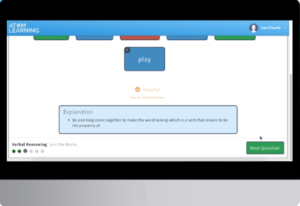Adediran said this in an interview with our correspondent in Osogbo on the sidelines of programme organised by the union to mark the 2018 World Teachers Day.
The union leader said that some teachers had retired from schools and that new ones should be employed to fill the vacancies left behind but he advised that only qualified teachers should be engaged.
ASUU supports minimum wage
He explained that payment of tuition in Nigerian universities was unconstitutional as education remained a right and a public good. According to him, the introduction of education banks will do nothing better than enslave students and make them indebted for life. He also declared that ASUU was with the labour union in its efforts for the betterment of the life of Nigerian workers who are also producers and preservation of the wealth of the nation. Lawan lamented the lack of responsiveness of government to the needs of public universities, stressing that government was out to destroy university education as it had done to primary and secondary education in the country.
Read more at: https://www.vanguardngr.com/2018/10/asuu-rejects-introduction-of-education-banks-supports-minimum-wage/
Dangote Cement awards scholarships
 As part of its corporate social responsibility, Dangote Cement Plc, Ibese Plant, Ogun State, has awarded scholarships valued at the sum of N25m to students of tertiary institutions and secondary school pupils in 15 host communities in the state.
As part of its corporate social responsibility, Dangote Cement Plc, Ibese Plant, Ogun State, has awarded scholarships valued at the sum of N25m to students of tertiary institutions and secondary school pupils in 15 host communities in the state.
A total of 100 students in various tertiary institutions and 15 pupils benefitted from the company’s gesture. The beneficiaries are from the Ewekoro and Yewa North Local Government areas of the state.
The Manager of the Ibese Plant, Armando Martinez, said the gesture was part of the company’s resolve to encourage the young ones to go to school and in return, to rebuild their respective communities.
The Future of Learning
The Independent Schools Examination Board (ISEB) Common Pre-Tests are standardised measures of ability and attainment taken when students are in year 6 or occasionally in year 7. They can only be taken once in any academic year. The senior schools to which students apply register students for the ISEB Common Pre-Tests.
The adaptive tests are created for ISEB by GL assessment. Adaptive means that the test gets harder when the student answers questions correctly and easier when the student answers the questions incorrectly.
The ISEB Common Pre-Tests are computerised tests which comprise of four multiple-choice assessments: English, maths, verbal reasoning and non-verbal reasoning.
The time allowed for each test is as follows:
- English | 25 minutes;
- Maths | 50 minutes;
- Verbal Reasoning | 36 minutes; and
- Non-Verbal Reasoning | 32 minutes.
Children faced with Learning Challenges
In spite of the promulgation of section 8 of the National Policy on Education which states that children with special needs education should be attended to, many public and private educators are yet to fill in this gap. The policy describes special needs education in Nigeria as “a customized educational program that is designed to meet the unique needs of persons with special needs that the general education program cannot cater for”
Cow urine is useful – University Research

The research, by Professor of Environmental Microbiology Chuma Conlette Okoro, centred on novel technology of remediating problems associated with souring and corrosion in the petroleum industry.
Prof Okoro’s study was funded by the Petroleum Technology Development Fund (PTDF) which has been financing research activities in relevant fields in the oil and gas industry in the last decade.
Pipeline corrosion, which is decay or deterioration of pipelines buried underground, exposed to the atmosphere, or submerged in water, is a growing problem in the oil and gas industry.
Pipelines transporting crude oil, water and gas from onshore oil producing facilities in Nigeria are usually subject to frequent dirt, solid deposit accumulation and corrosion despite treatment programmes adopted by companies.
Any of these problems or combination of them can result in costly operational problems like high maintenance costs, expensive parts replacement and unscheduled shut down.
According to researchers, pipeline and facility corrosion is a major issue globally and about 20-30% of corrosion is related to microbial activity originating from hydrocarbon and ground water sources.
It cost Nigeria’s oil sector $600 million annually to manage souring and corrosion related problems.
NAAT blames mass failure of students on low budget for education
The National Association OF Academic Technologists (NAAT) has blamed the abysmal performance of secondary school students on the dwindling allocation of resources to the education sector.
The union in a communiqués reached at the end of its 37th National Executive Council (NEC) meeting, held at Obafemi Awolowo University (O.A.U), Ile-Ife, noted that despite the existence of ‘special centres’, the results of the Senior Secondary Certificate Examination (SSCE) keeps dropping year on year.
The union observed that the abysmal performance is equally to blame for the falling standard of education across the tertiary levels. The communiqué read in part: “In spite of the worrisome existence of ’special centres’, the results of SSCE keep dropping – implying poor quality of secondary school graduates. This may not be unconnected with the poor allocation of financial and human resources to the education sector.
Full article: https://guardian.ng/appointments/naat-blames-mass-failure-of-students-on-low-budget-for-education/
Education sector in dire need of intervention — Oando Foundation
 Through our signature project, the Adopt-a-School initiative, we are committed to providing a holistic and integrated approach to basic education which includes creating better learning environments, leveraging resources through partnerships, utilising best practices and cross-cutting solutions to improve the overall learning achievements of children in our adopted schools.
Through our signature project, the Adopt-a-School initiative, we are committed to providing a holistic and integrated approach to basic education which includes creating better learning environments, leveraging resources through partnerships, utilising best practices and cross-cutting solutions to improve the overall learning achievements of children in our adopted schools.
Since the Foundation was established by Oando PLC in 2011, we have adopted 88 public primary schools across 23 states in Nigeria spanning the six geo-political zones.
Youth unemployment rate in Nigeria increased to 33.10 per cent in the third quarter of 2017 from 29.50 per cent in the second quarter of 2017. We believe education is the greatest investment to secure sustainable development in the continent You will agree that with me that the Education sector in Nigeria is in dire need of intervention at all levels, we cannot fold our hands and leave the government alone to fix, hence the Foundation’s commitment to improving overall learning outcomes of children in public primary schools.
Full article : https://www.vanguardngr.com/2018/08/education-sector-in-dire-need-of-intervention-oando-foundation/
PTDF stops petroleum scholarship programmes’ extension

The Petroleum Technology Development Fund has put an end to requests for extension of the petroleum scholarship programmes that are funded by the agency.
According to the PTDF, scholars must henceforth complete their programmes within the stipulated time, as the fund will no longer condone any form of extension, “except in extenuating circumstances.”
The agency’s Executive Secretary, Aliyu Gusau, who disclosed this at the 2018\\2019 PTDF Overseas Scholarship Scheme for MSc and PhD scholars under the United Kingdom Strategic Partnership in Abuja on Monday, told the beneficiaries that the fund would not be liable for any extension beyond the recommended periods.
He said, “We won’t accept requests for extension anymore from scholars. This means that you must finish within the stipulated time, which is about 36 months for PhD scholars and something a bit similar for those going for MSc programmes. The PTDF will not accept extension requests except in extenuating circumstances.
Full article: https://punchng.com/ptdf-stops-petroleum-scholarship-programmes-extension/
Transfer forms into JSS2 and SS1 now available- Lagos State Ministry of Education
Transfer forms into JSS2 and SS1 classes in public secondary schools in Lagos State are now available for sale until August 17, 2018.
A statement by the Lagos State Ministry of Education noted that screening for pupils seeking transfer into the two classes has been scheduled for August 27, 2018 in the Six Education Districts by 9.00am.
The Permanent Secretary, Ministry of Education, Mrs Adebunmi Adekanye, who made this known at the Conference Room of Ministry of Education, said that applicants are first to obtain clearance slips from the Office of Tutor-General/Permanent Secretary in charge of the districts of the schools of choice to ensure that there is vacancy.
She said application forms could be obtained and returned to the office of the TG/PS for a fee N5, 000 payable to any Skye Bank Branch.
Mrs Adekanye said the JSS2 applicants are to attach their second and third term examination results of their J.S.S 1 class while those seeking transfer into SS.1 are to attach their Basic Education Certificate Examination (B.E.C.E) number.
In addition, all applicants are to attach evidence of three years’ tax payment of their parents or guardians, Photocopy of LASSRA Identity Card and application form receipt.
The Permanent Secretary said Model Colleges/Upgraded Schools are excluded from the transfers

 Parents whose children are faced with learning challenges can now heave a sigh of relief as special school for special needs education berths in Lagos.
Parents whose children are faced with learning challenges can now heave a sigh of relief as special school for special needs education berths in Lagos. 
